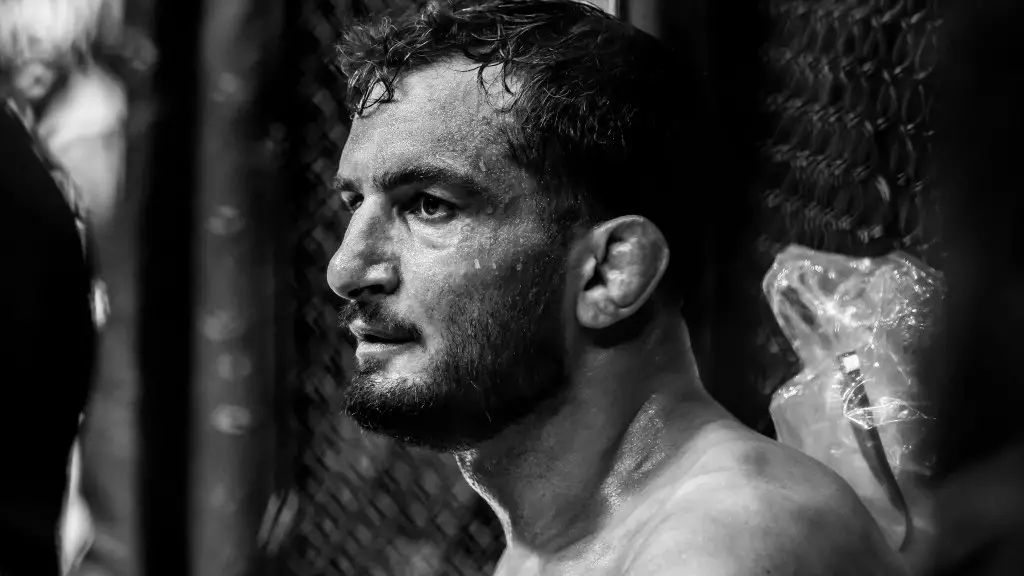Gegard Mousasi, a distinguished figure in the world of mixed martial arts (MMA), is currently embroiled in a legal battle that has sent shockwaves throughout the fighting community. The crux of this drama lies in a substantial $15 million lawsuit he has filed against Bellator MMA and its parent company, the PFL (Professional Fighters League). As a seasoned former champion with a mixed record, Mousasi’s grievances touch upon complex allegations surrounding contract breaches, mismanagement, and overall treatment by the officials in his immediate professional environment.
Filed in the U.S. District Court for the District of New Jersey, the 65-page civil suit encompasses a range of serious claims against several high-profile executives from the PFL, including Peter Murray and Ray Sefo. Mousasi accuses the organization of breaching his contract following Bellator’s acquisition by the PFL, effectively complicating his career trajectory at a critical juncture. The core allegations include breach of contract, unjust enrichment, and what Mousasi describes as misclassification-related labor issues, stirring discussions about fairness in the competitive realm of MMA.
Mousasi’s frustration is likely fueled by the fact that, prior to the PFL’s takeover, he had a structured deal with Bellator that encompassed not just fight purses but also guaranteed promotional fees. According to the lawsuit, these agreements have been disregarded following the corporate shift. With such a storied career behind him—sumptuous with titles and accolades—Mousasi’s current struggles highlight a considerable backslide in managing his professional engagements. The claim for $15 million encapsulates not just potential financial recompense, but also embodies a plea for recognition of his contributions and rights as an athlete.
To understand the implications of Mousasi’s lawsuit, one must examine the wider context of the PFL’s acquisition of Bellator. The transition has raised significant questions about fighter treatment and contract adherence across MMA organizations. Mousasi’s vigorous pursuit of clarification and respect for his contractual rights, as evidenced in his manager Nima Sapafour’s persistent communications with the promotion, reflects a growing concern about athletes’ wellbeing in a landscape marred by corporate interests.
The concerns escalated enough for Mousasi to go public with his grievances, labeling Bellator as “the worst organization” in a biting critique earlier this year. Such statements serve not only as a personal reflection of his frustrations but also as a struggle to draw attention to systemic issues facing fighters in the sport. The compounded distress of being unable to compete—citing contractual obligations—further complicates the narrative, as it intertwines his personal ambitions with the broader atmosphere of the MMA industry.
As the lawsuit gains traction, it may serve to create a ripple effect through the MMA landscape. Fighting leagues may be forced to reevaluate their contractual practices and the general treatment of athletes. If Mousasi’s suit succeeds, it could set a precedent, pushing organizations like the PFL and future governing bodies to redress the balance of power between fighters and management.
Moreover, the legal questions surrounding Mousasi’s claims open doors to a broader discourse on athlete rights in combat sports. The fighting community and observers alike are now paying heightened attention to how organizations manage contractual negotiations and uphold ethical standards in treatment. Whether or not Mousasi’s battle culminates in a favorable outcome for him personally, it may spark crucial changes in how fighters’ rights are perceived and protected.
Gegard Mousasi’s current lawsuit against Bellator and the PFL represents more than just a financial dispute; it underscores the frailty of an athlete’s career in a corporate milieu driven by transient interests. As the chapter unfolds, MMA enthusiasts and professionals watch closely, hoping that this case will pave the way for a more equitable system for fighters—fostering a landscape where passion does not come at the expense of dignity and fairness. As the world of MMA continues to evolve, the outcome of Mousasi’s legal battle may very well chisel the path forward for many who dare to step into the octagon.

